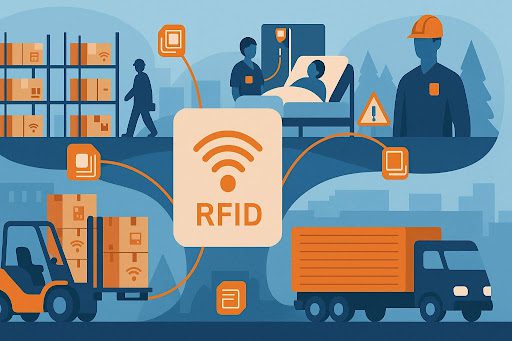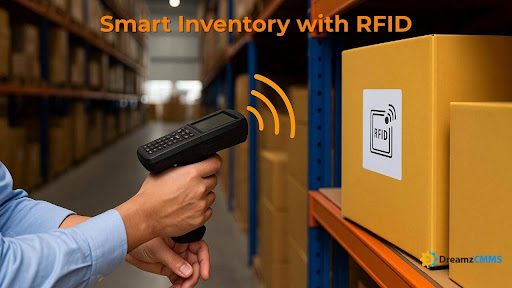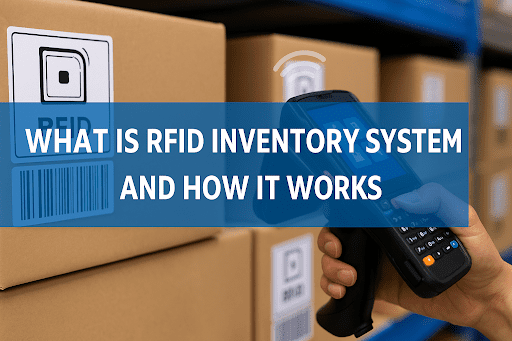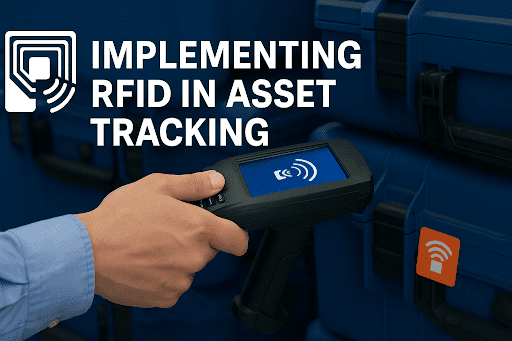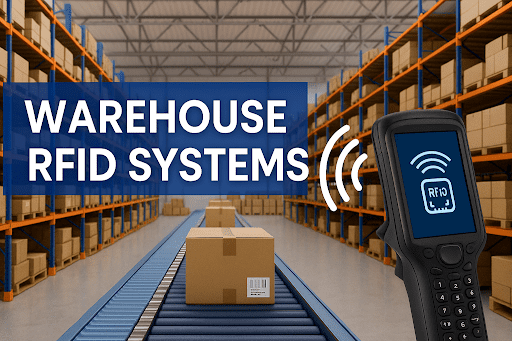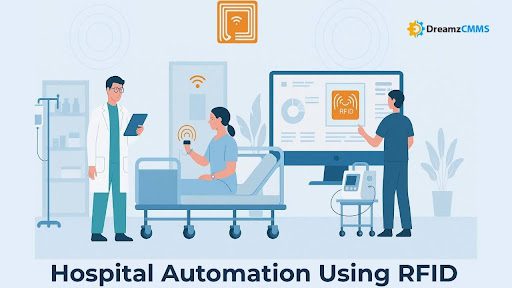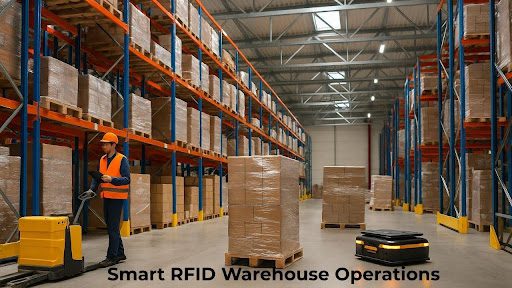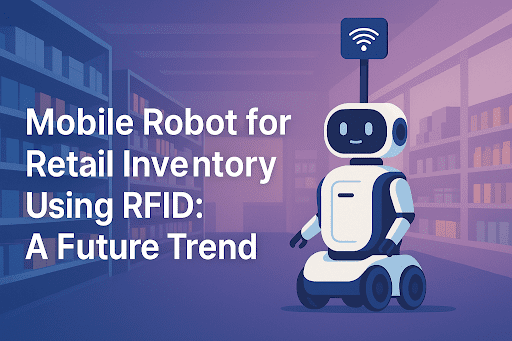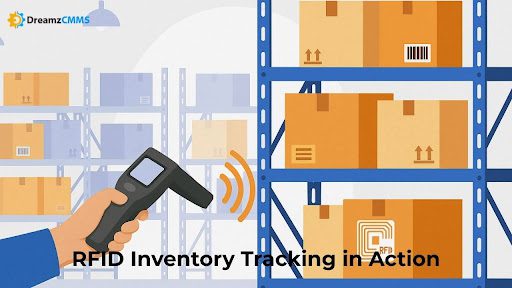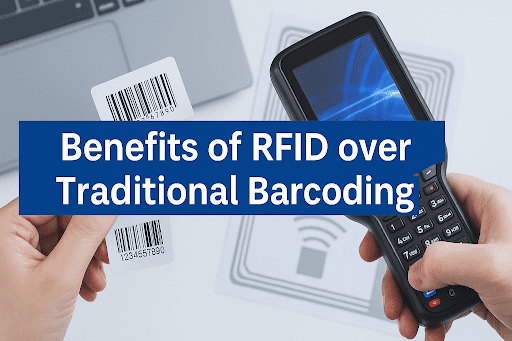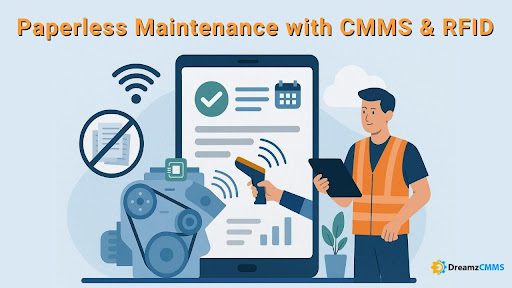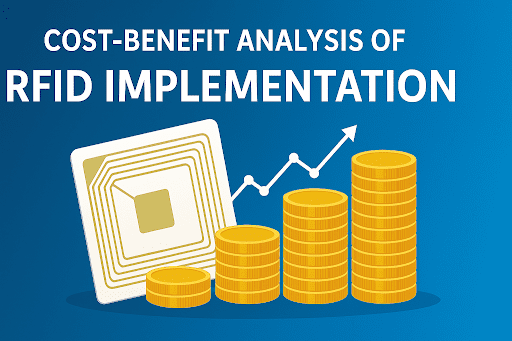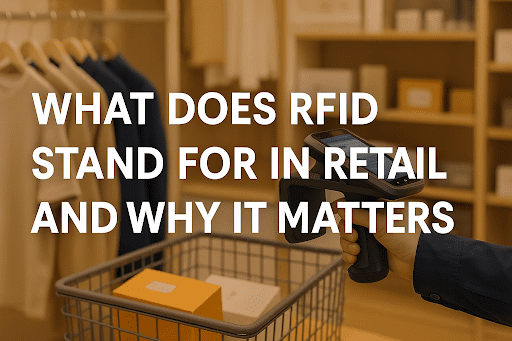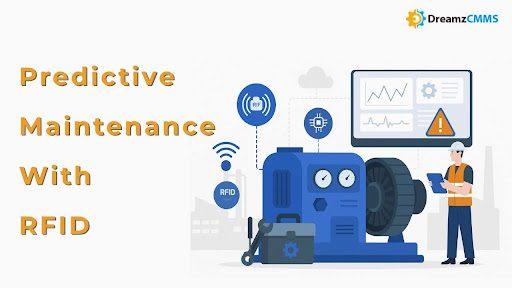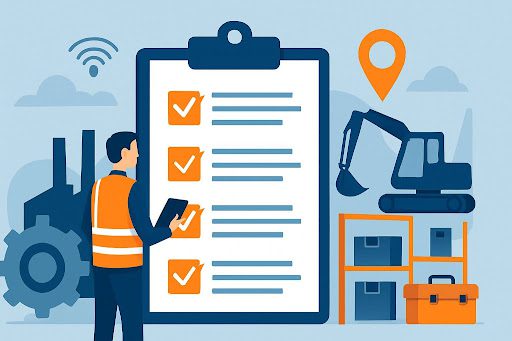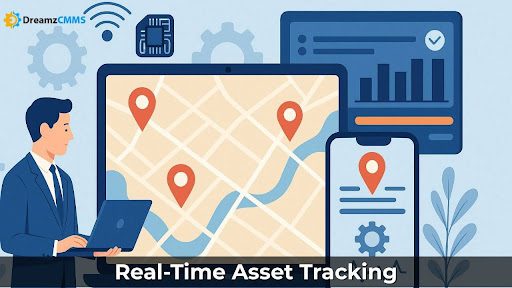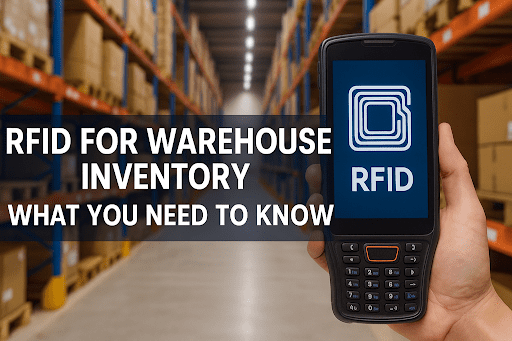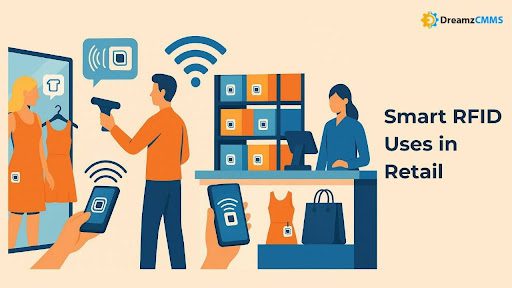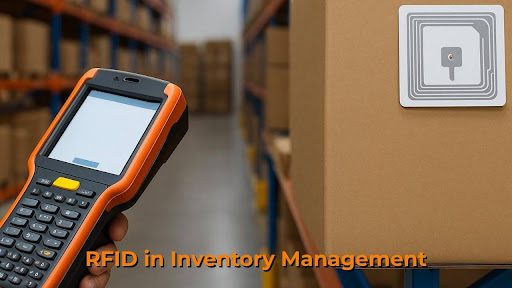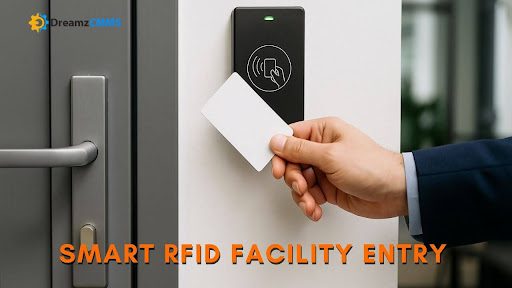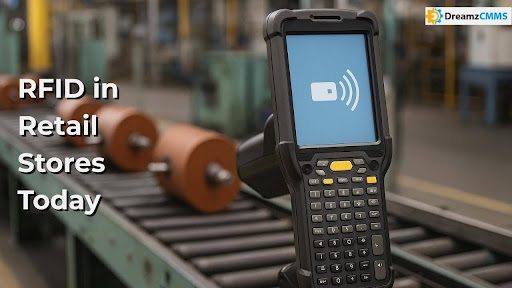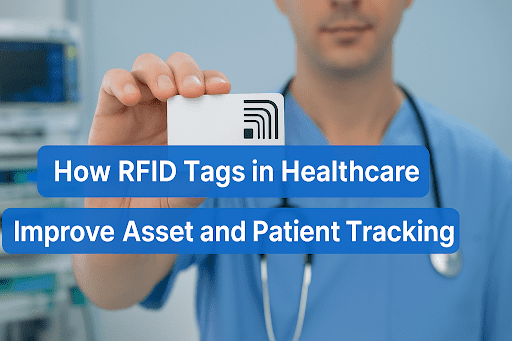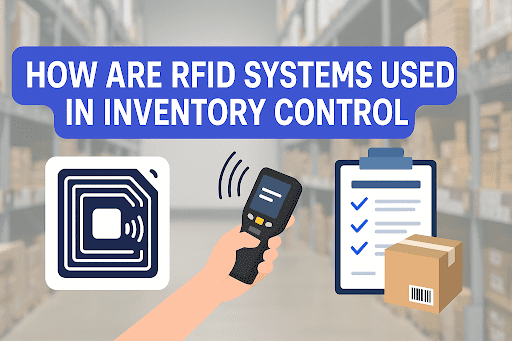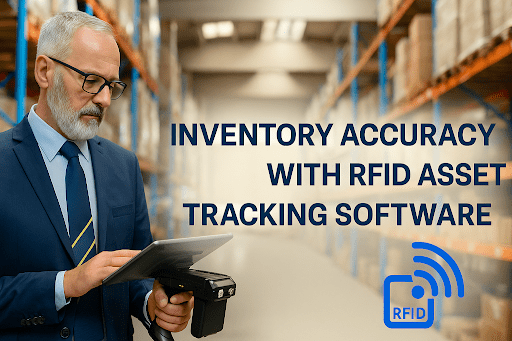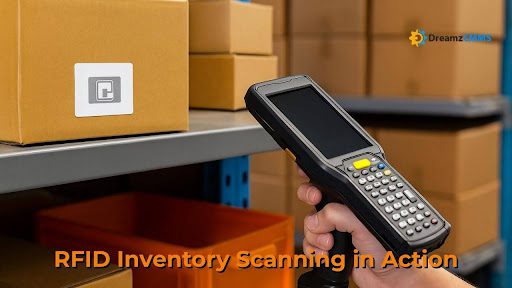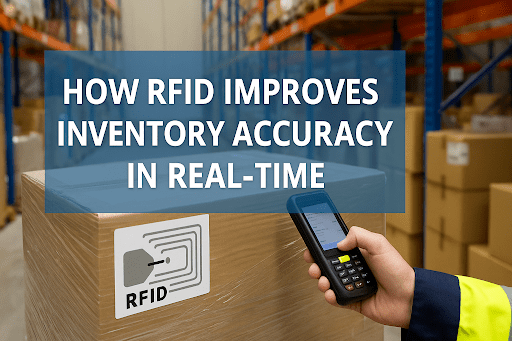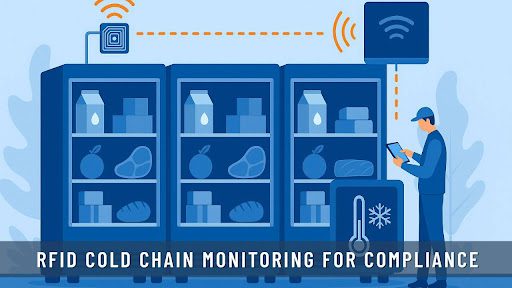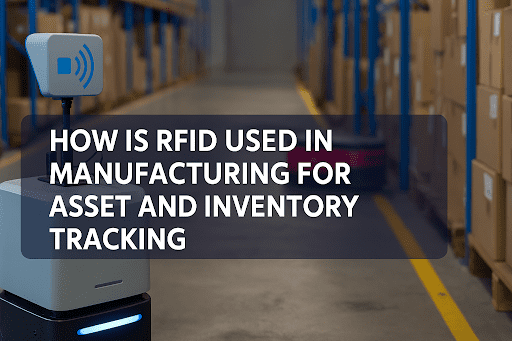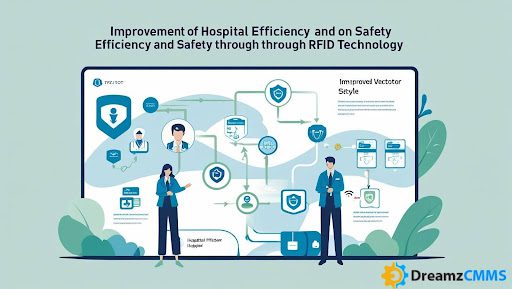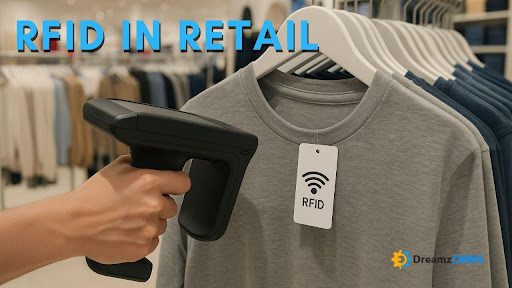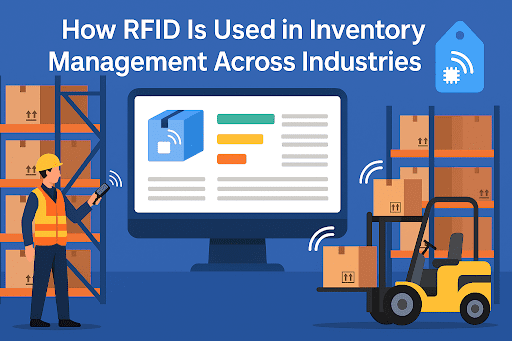 BACK TO Blog
BACK TO Blog
Asset Rental Management
RFID Asset Tracking
What Is RFID Used for in Retail Stores Today?
- August 27, 2025
- DreamzCMMS Team
- 10 minutes read
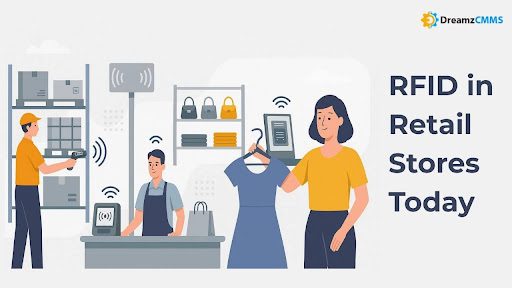
- August 27, 2025
- DreamzCMMS Team
- 10 minutes read
Modern technology has led to significant changes in retail operations during the last ten years which resulted in smarter operational methods combined with customer-centered approaches. The retail industry experiences its most significant transformation through Radio Frequency Identification (RFID) which operates as a transformative tool for store management and inventory optimization and customer service. What specific applications does RFID currently serve in retail stores?
The retail experience undergoes transformation through RFID retail applications that include inventory management along with theft prevention and automated checkout solutions. This article examines the functional applications of RFID in retail stores alongside their advantages and their impact on future retail industry development.
First CTA: Explore Asset Maintenance Management SoftwareRetail inventory management extends beyond basic asset control operations. TheAsset Maintenance Management Software helps businesses optimize their operational workflows while minimizing downtime to achieve maximum operational efficiency. |
Understanding RFID in the Retail Context
The cutting-edge technology known as RFID relies on electromagnetic fields to automatically identify objects by reading data stored on tags which are attached to physical items. The retail industry enables seamless tracking of all products from individual clothing items through complete pallets across the entire supply chain from warehouses to store shelves to customer shopping bags.
RFID technology provides speed and accuracy and automation capabilities which exceed traditional barcode systems because it operates independently of manual scanning requirements. The simultaneous scanning of multiple items at rapid speeds allows retailers to obtain real-time inventory status and product movement tracking. The ability of RFID makes it a leading retail RFID technology application which supports inventory management alongside theft prevention and customer satisfaction enhancements.
Key Components of Retail RFID Technology Applications
The fundamental elements of retail RFID operations need examination to grasp its retail applications:
- RFID Tags – RFID tags are small electronic devices that contain unique product identification data. The retail industry applies tags to individual merchandise items as well as product packaging and complete product pallets. Retailers who tag each shirt size and color variant allow real-time tracking of sales patterns in their fashion business.
- RFID Readers – RFID Readers serve as tracking devices which function at vital locations throughout the store such as entry points and exits as well as shelf areas and fitting rooms and checkout stations. The system can identify multiple tags simultaneously which results in quicker operations than traditional barcode scanning methods. The technology exists in handheld form and fixed installations as well as mobile device integration for flexible store-wide deployment.
- RFID Antennas – Often overlooked, antennas act as the bridge between tags and readers. Through radio signal transmission the RFID tags receive activation while the reader collects responses which enables continuous data exchange between different store areas.
- RFID Middleware & Software – The data collected by readers is processed by specialized software, often integrated into a retailer’s ERP, WMS, or CMMS platform. The system evaluates basic information then presents dashboard reports which integrate flawlessly with other business applications to enhance organizational decision-making processes. The software system automatically updates inventory counts following product sales and generates automated stock replenishment notifications for low shelf inventory.
Why RFID Outperforms Barcodes in Retail
RFID represents a necessary technological advancement for contemporary retailers since they must transition beyond barcodes. The system has three major drawbacks:
- Each item requires individual scanning for identification.
- Line-of-sight is required.
- Barcodes fail to scan when they become damaged or when they are smudged.
These problems disappear through RFID technology implementation. The system can identify large quantities of products through bulk scanning even when products are concealed by packaging materials or stacked in storage. The automated system improves operational efficiency through time savings and error reduction which creates a competitive advantage for retailers.
The digital nervous system of contemporary retail operations uses RFID to supply retailers with continuous accurate automated feedback which helps them decrease expenses and boost precision and create exceptional customer interactions.
The complete explanation of RFID asset tracking fundamentals can be found in our guide called What is RFID asset tracking.
1. RFID Retail Inventory Management
The main use of RFID in retail operations is inventory management. The manual process of conducting stock counts proves to be slow and error-prone. Stores use RFID technology to monitor their products in real-time which results in inventory accuracy rates reaching between 98 and 99%.
Benefits include:
- Faster and more accurate stock counts.
- The system provides real-time access to track individual products moving within retail stores.
- Improved replenishment strategies.
- Better demand forecasting through data-driven insights.
The inventory management system of retail RFID tracks apparel products by monitoring both sizes and colors present in store displays. After a sale occurs the system generates automatic backroom restocking instructions that prevents empty shelves.
The complete analysis of RFID impact on inventory control practices appears in How Are RFID Systems Used in Inventory Control.
2. RFID Retail Theft Prevention
Retail businesses suffer from one of their most significant problems through billions of annual losses because of theft together with misplaced merchandise. The implementation of RFID technology leads to advanced retail store solutions through its connection with electronic article surveillance systems.
How it works:
- The RFID tags trigger security alerts every time items exit the store without proper checkout procedures.
- The security team receives important information regarding products with high risk potential.
- The tracking system enabled by RFID technology helps investigate loss incidents after they occur.
RFID retail theft prevention helps retailers minimize losses while building customer trust through clear operational processes.
3. Enhancing RFID Retail Customer Experience
The retail industry now focuses on delivering experiences to customers instead of only selling merchandise. The implementation of RFID technology helps create superior customer experiences through individualized shopping experiences and simplified store navigation.
Applications include:
- The system uses RFID technology in fitting rooms to offer suitable product suggestions to customers during item trials.
- When customers pick up items the displays automatically show product details along with stock information and promotional content.
- The use of RFID technology enables automatic bulk item scanning at checkout thus eliminating long lines.
RFID technology serves purposes beyond operational efficiency by building customer loyalty through its ability to create smooth and satisfying shopping experiences.
4. RFID Retail Supply Chain Uses
RFID provides advantages which reach further than store operations because they operate within supply chain management. The tracking system monitors products from manufacturing sites through distribution centers to retail floor displays.
The implementation of RFID in supply chain management produces multiple advantages.
- Real-time visibility into shipment status.
- Reduction of misplaced shipments.
- Faster receiving processes at warehouses and stores.
- Improved vendor accountability.
The article How RFID Is Used in Inventory Management Across Industries. demonstrates RFID operations throughout various industrial sectors.
RFID retail supply chain uses enable retailers to shorten delivery times while delivering correct products to specific locations at proper moments.
5. RFID Retail Checkout Applications
Queues that drag on throughout the shopping experience constitute the primary source of consumer discontent. The retail industry implements new checkout solutions through RFID technology to address this issue.
- The self-checkout kiosks perform simultaneous scanning of various items.
- Amazon Go operates cashless stores which employ RFID to both track merchandise and perform automatic payment processes for customers.
- Fast checkout operations reduce to seconds thus producing a seamless shopping experience.
RFID system applications for retail have achieved the perfect blend of speed and accuracy with convenience.
6. RFID Retail Analytics Uses
Modern retail depends on data-driven choices for its operational foundation. Through RFID retailers obtain extensive precise real-time data regarding product movement alongside customer behavior patterns.
The following uses are derived from RFID retail analytics:
- Identifying best-selling products by store section.
- Understanding peak shopping hours and traffic flow.
- Measuring conversion rates from fitting room to checkout.
- Analyzing customer preferences and return trends.
The analytics capabilities help retailers make better choices while they improve their store layouts and develop personalized marketing strategies.
7. RFID Retail Automation Purposes
The retail sector has reached a point where automation stands as an essential necessity. The three main goals of RFID retail automation purposes are the reduction of manual work while streamlining all store operations and enhancing operational efficiency.
- The replacement of manual counting operations by automated inventory systems has become standard practice.
- Smart shelves can detect low stock levels which automatically generate replenishment orders.
- Backroom logistics are optimized for quick product retrieval.
The implementation of RFID automation enables businesses to achieve operational excellence while reducing their labor costs and improving accuracy rates.
8. RFID Retail Tracking Applications
The most influential RFID retail tracking application enables real-time monitoring of items. Retailers who assign RFID tags to their products achieve full supply chain visibility starting from manufacturing plants and distribution centers up to store shelves and customer checkout. The continuous tracking system keeps assets in constant view which leads to better decisions and improved operational efficiency.
Key benefits include:
- Real-time tracking through RFID systems decreases product shrinkage and theft while reducing misplacement because it continuously updates product locations. The system protects inventory while simultaneously reducing employee time spent searching for missing items.
- Store layouts become more efficient through RFID data analysis which helps retailers determine their most visited areas and arrange their products accordingly. The strategic placement of popular items leads to increased sales while moving slow-moving stock to better visible locations.
- RFID technology enables retailers to fulfill modern retail requirements by supporting BOPIS (Buy Online, Pick Up In Store) and curbside pickup and same-day delivery. Retailers can deliver fast reliable fulfillment to customers through accurate inventory tracking which eliminates stockouts and order cancellations.
Real-time RFID retail tracking provides two main advantages which benefit both retailers through operational efficiency and customers through improved shopping experiences.
9. Retail RFID Technology Applications in Different Sectors
RFID applications vary across retail sectors, including:
- Apparel – Inventory accuracy and smart fitting rooms.
- Grocery – Expiry tracking, automated checkout, and supply chain visibility.
- Electronics – Theft prevention and warranty management.
- Luxury Retail – Authenticity verification to fight counterfeits.
Each sector benefits uniquely from RFID retail industry uses, showcasing the adaptability of the technology.
Conclusion: The Expanding Role of RFID in Retail
The current applications of RFID in retail operations include what functions? The applications of RFID extend across all operational aspects of retail including inventory management and theft prevention as well as customer experience and supply chain optimization and checkout and analytics and automation and real-time tracking. Retailers have transitioned RFID from its early status as a specialized tool to its present role as a fundamental efficiency driver and innovation source for the retail sector.
The implementation of RFID retail store solutions enables retailers to establish market leadership through cost reduction and operational efficiencies while simultaneously developing personalized shopping experiences. RFID provides retailers with capabilities to enhance their product-to-shopper connections through features such as precise stock availability tracking and seamless self-checkout systems and intelligent fitting rooms.
The technology provides instant data collection capabilities that function as a strategic growth asset for businesses. Retailers use RFID for inventory management to maintain full shelves while using analytics for product placement decisions and promotion optimization to define the future of retail through agile and precise operations.
The delay of RFID adoption by retailers will lead them to lose market ground to their competitors as customer expectations rise. Businesses that implement RFID retail industry uses now build operational excellence while securing future readiness for automated data-driven customer experience-based operations. The use of RFID technology has transitioned from being an optional improvement to becoming the essential foundation for contemporary retail operations.
Start Your Digital Transformation with DreamzCMMS
The future of retail depends on modern technology that enables smarter operations. The innovative tools of DreamzCMMS help businesses track and optimize their assets through seamless management systems. Book your Free Demo today and see how RFID-powered solutions can revolutionize your retail operations.
Ready for More?
Talk to one of our CMMS experts and see how DreamzCMMS can simplify your maintenance operations.
Book a free consultation